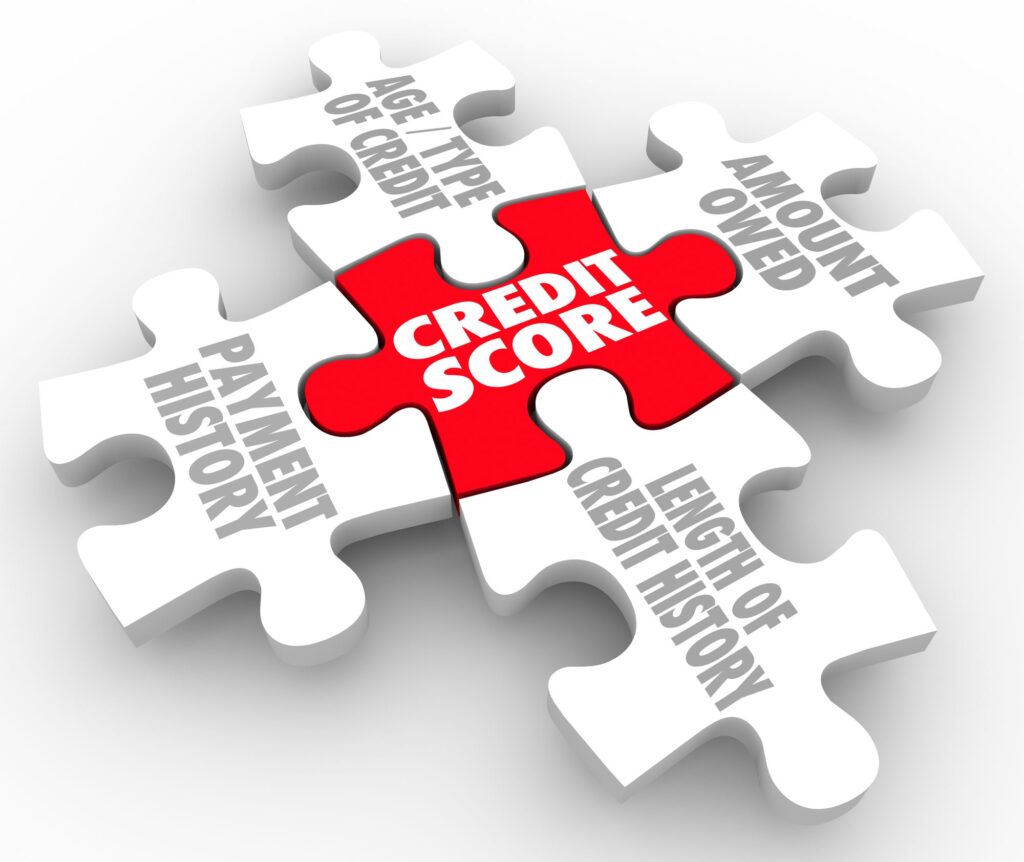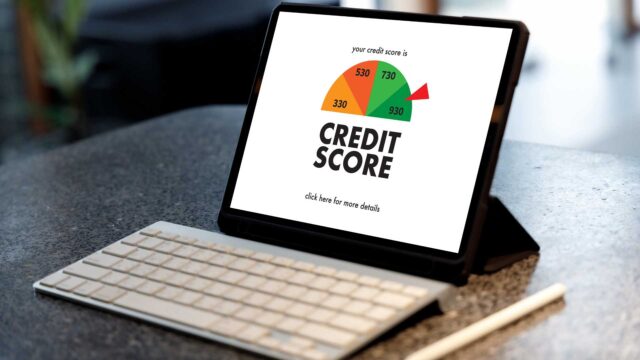Your credit score is a three-digit number ranging from 300 to 850 that provides a snapshot of your credit history and overall creditworthiness. Also called a FICO score, it is calculated based on information in your credit reports from the three major reporting bureaus – Experian, Equifax, and TransUnion. Lenders use credit scores to determine the likelihood that you’ll repay debts on time. In general, higher scores signal lower credit risk, resulting in better loan terms.
The Factors Impacting Your Credit Score
Several factors shape your overall score. Payment history (whether bills are paid on time) determines 35% of scores. Amounts owed or credit utilization rate (debt-to-available credit ratios) also weigh heavily, making up 30%. Credit mix between installment loans and revolving accounts affects 10%. Inquiries, or the number of times your credit gets checked when applying for new credit, make up 10%. Last, length of credit history accounts for 15%. Monitoring how these areas evolve provides insights on how to boost your number.
Why Your Credit Score Matters

Credit scores influence much more than just getting approved or denied for loans. Landlords often check scores to determine rental applicants’ reliability. Utility companies may request credit checks requiring deposits for low scores. Auto and homeowner’s insurance companies factor in scores to set premium amounts. Even some employers verify scores for sensitive financial positions. So healthy credit means more favorable rates, terms, and decisions as you navigate major life needs.
How to Check Your Credit Score
The easiest way to check scores is online through websites like annualcreditreport.com and creditscore.com which provide both reports and scores. You can also receive credit reports for free annually from each of the three major credit bureaus by requesting them directly either online or by mail. Review reports carefully checking for inaccuracies which if found, can be disputed directly with the bureaus. Some credit card companies also offer free monthly access to scores via online accounts.
Interpreting the Credit Score Range
Exceptional credit scores fall between 800-850, with 740 or higher considered very good. A score of 670-739 falls under good credit, 630-669 is fair or average, and 580-629 is considered poor. Under 580 and down to 300 is viewed as very poor credit. While higher is better across lending decisions, small score fluctuations month-to-month are normal. What matters is the overall trajectory long-term.
Boosting Your Credit Score
Several strategies can help build healthier scores over time. Keep credit card balances low, with less than 30% of the credit limit in balances. Pay all bills on time each month for positive payment history. Avoid opening too many new accounts rapidly since this can lower score averages. Leave old accounts open and active which supports better credit mix and history length. Correct report errors that may be inaccurately depressing a score. Last, consider contacting lenders about credit repair programs that exchange debt forgiveness options in return for financial education.
Potential Impacts of a Low Credit Score

Weak credit scores can drastically impact finances and economic mobility. According to Colorado mortgage broker Mortgage Maestro, applicants with poor scores often face application denials, high interest rates or burdensome fees when they do qualify for lending products like home loans, credit cards, and personal loans. Weak scores also sink buying power resulting in costly security deposits and restrictions on living situations and insurance options.
Conclusion
Understanding the power credit holds over individual stability and upward mobility is the first step toward financial empowerment. Strategic credit building paired with diligent financial education over time enables people to counteract past mistakes and work toward healthier scores and mainstream access to affordable lending that facilitates goals.



